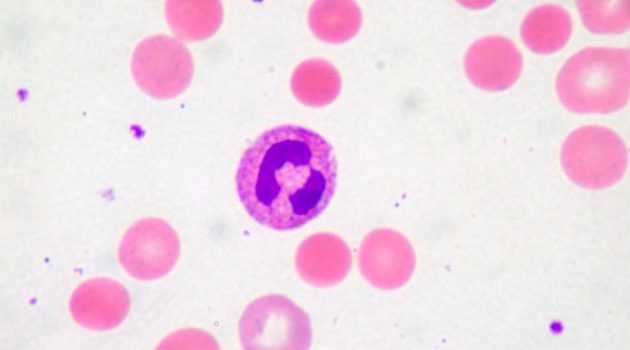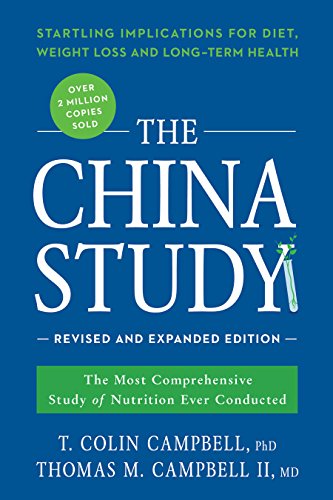

This article is an excerpt from the Shortform summary of "The China Study" by Colin Campbell. Shortform has the world's best summaries of books you should be reading.
Like this article? Sign up for a free trial here .
What causes autoimmune diseases? Is there anything you can do to prevent them?
Most doctors agree that autoimmune diseases are some of the hardest to treat because their cause isn’t well understood and there’s no cure. Is it possible that our food choices affect even these stubborn and grim illnesses? We’ll look at how different autoimmune diseases are related in an effort to understand why they might have a common source.
Many Unknowns: What Causes Autoimmune Disease?
In people with autoimmune disease, the body attacks itself. The immune system thinks it’s assaulting foreign invader cells, but it’s actually destroying normal body cells. Tens of millions of Americans have autoimmune diseases, including multiple sclerosis (MS), Type 1 diabetes, lupus, and rheumatoid arthritis.
Before looking at food’s role in the development of autoimmune diseases, let’s look at their bodily source, the immune system.
How the Immune System Works
We can think of the immune system as our body’s military. White blood cells are the soldiers, keeping us safe by attacking foreign invaders like bacteria and viruses.
Whenever it confronts a new invader, the immune system creates a protein that mirrors the invader protein. This mirror protein molds itself onto the invader and destroys it.
The Problem: Some invaders look a lot like our own cells. The molds that fit and destroy invaders can also fit and destroy the normal cells that look like them.
Sometimes, the immune system’s molds get confused. They can’t tell the difference between invaders and similar-looking cells, so they attack the normal cells. This is the root of an autoimmune disease.
Autoimmune Diseases May Have a Common Cause
While the presentation of each autoimmune disease differs, we can speak about them as a group and even discuss a common cause because of six ways they’re alike:
Commonality #1: Each is a disease in which the body’s immune system attacks itself.
Commonality #2: All studied autoimmune diseases are more prevalent in northern areas far from the equator, where there’s less sunlight.
Commonality #3: Some of these diseases cluster together in individuals. For example, MS and Type 1 diabetes often occur in the same individuals and Parkinson’s and MS are both common in the same geographic areas (and may also affect the same individuals). Numerous other associations like these exist.
Commonality #4: For all these diseases, consumption of animal foods in general, and cow’s milk in particular, has been linked to greater risk. Let’s take a look at how they may be related.
Foreign proteins are called antigens. There’s evidence that antigens that trick our bodies into attacking themselves come from the foods we eat in the form of undigested proteins. The immune system may treat undigested proteins from food as foreign invaders.
Cow’s milk especially has many proteins that mimic those in our bodies. In some people, these antigens confuse the immune system. Instead of attacking undigested milk proteins, it attacks similar-looking body proteins.
Commonality #5: A virus may trigger several autoimmune diseases.
Commonality #6: The “mechanisms of action” of these diseases, or the process of development, are similar. There’s evidence that vitamin D is involved in the most prominent mechanism.
Just as a deficiency in “supercharged” vitamin D can increase prostate cancer risk, it can also increase your risk of developing an autoimmune disease.
Supercharged vitamin D is a necessary component of your immune response. Without it, your immune system doesn’t work as efficiently.
Excessive amounts of calcium and animal proteins (which cause excess acid in the body) hamper the body’s ability to supercharge vitamin D from sunlight.
These six commonalities allow us to talk about autoimmune diseases as a group. They also offer a possible answer to the question, “What causes autoimmune disease?”: Animal foods.
Recommendations for Preventing Autoimmune Disease
- Breastfeed your infant and decrease your child’s consumption of cow’s milk to lower his or her risk of Type 1 diabetes.
- Eliminate saturated fat from your diet. Saturated fats are generally found in animal products. Foods with especially high amounts include beef, pork, poultry skins, hot dogs, bacon, lunch meats, butter, lard, high-fat dairy, and fried foods.
- Get vitamin D from sunlight by spending time outside 2-3 times per week. You may know how much time in the sun causes your skin to get red. Plan each session in the sun to be ¼ of this length of time. For example, if 30-40 minutes in the sun makes your skin red, spend 10 minutes in the sun, three times a week, to get the vitamin D you need.
What causes autoimmune disease? We’re not sure. But there’s evidence that cutting back on animal products in your diet might help prevent autoimmune disorders.
———End of Preview———

Like what you just read? Read the rest of the world's best summary of "The China Study" at Shortform . Learn the book's critical concepts in 20 minutes or less .
Here's what you'll find in our full The China Study summary :
- Why animal proteins (meat, milk) might cause cancer, diabetes, and other diseases
- Why the medical institution is structured to hide the truth about disease and food
- The precise diet you'll need to eat to live longer and feel happier






